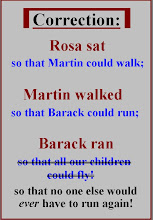
Many believe that the TEA party movement should remain non-partisan in the sense of not becoming a political party. This site disagrees. We think it's high time to get TEA Party candidates on the ballot — in every state and at every level.
A TEA Party political party should take as its model the Conservative Party (CP) of New York. Most of the time, CP runs the Republican slate. However, should the Republican nominee lack conservative credentials, there's always the option of running someone else. CP nominees often wind up losing three-way races; but not always, the most notable instance being the election of Jim Buckley to the U.S. Senate in 1970. That year, the left-liberal vote split between the Democrat and a liberal Republican, and Buckley won with 39% of the vote. More recently, CP House candidate Doug Hoffman came within a couple of percentage points of defeating Democrat, Bill Owens. In fact, Hoffman would probably have prevailed, but for the perfidy of Dierdre Scozzafava, the Republican nominee who, trailing badly in the polls and a sore loser to boot, withdrew shortly before the election and endorsed Owens.
Banking on the GOP to do the right thing is an invitation to disappointment. Especially at the national level, Republicans have time and again betrayed conservative principles. Mmes. Snowe and Collins, Messrs. Graham and McCain, to give four better-known examples, differ from the Democrats they run against in degree, not kind. To ensure Republican fidelity to conservative principles in the choice of nominees, the fat cats, the apparatchiks and, yes, the voters too must be given proper incentive. To this end, we propose the choice shown in the accompanying figure: Nominate conservative candidates or lose.
America is a center-right country. Among the electorate, if not the media-concocted caricature thereof, conservatism is on the ascendancy. Let liberal Republicans and Democrats squabble, like stray dogs for a handout, over the diminishing abundance of left-liberal votes. Attractive TEA Party candidates running against a Democrat and a business-as-usual Republican should have a good chance of winning. If short-term considerations be one's guide, this is a good time to stand on principle; if long-term considerations, it's always a good time.
A TEA Party political party should take as its model the Conservative Party (CP) of New York. Most of the time, CP runs the Republican slate. However, should the Republican nominee lack conservative credentials, there's always the option of running someone else. CP nominees often wind up losing three-way races; but not always, the most notable instance being the election of Jim Buckley to the U.S. Senate in 1970. That year, the left-liberal vote split between the Democrat and a liberal Republican, and Buckley won with 39% of the vote. More recently, CP House candidate Doug Hoffman came within a couple of percentage points of defeating Democrat, Bill Owens. In fact, Hoffman would probably have prevailed, but for the perfidy of Dierdre Scozzafava, the Republican nominee who, trailing badly in the polls and a sore loser to boot, withdrew shortly before the election and endorsed Owens.
Banking on the GOP to do the right thing is an invitation to disappointment. Especially at the national level, Republicans have time and again betrayed conservative principles. Mmes. Snowe and Collins, Messrs. Graham and McCain, to give four better-known examples, differ from the Democrats they run against in degree, not kind. To ensure Republican fidelity to conservative principles in the choice of nominees, the fat cats, the apparatchiks and, yes, the voters too must be given proper incentive. To this end, we propose the choice shown in the accompanying figure: Nominate conservative candidates or lose.
America is a center-right country. Among the electorate, if not the media-concocted caricature thereof, conservatism is on the ascendancy. Let liberal Republicans and Democrats squabble, like stray dogs for a handout, over the diminishing abundance of left-liberal votes. Attractive TEA Party candidates running against a Democrat and a business-as-usual Republican should have a good chance of winning. If short-term considerations be one's guide, this is a good time to stand on principle; if long-term considerations, it's always a good time.













No comments:
Post a Comment